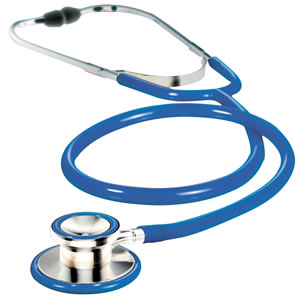Prince Elochukwu Adibor, the Chief Executive Officer of EL-LAB Medical Diagnostic Centre says wrong diagnosis can ge harmful in the clinical management of ailments.
Adibor told the News Agency of Nigeria (NAN) on Sunday in Abuja that medical laboratory services contributed to about 70 per cent of the decisions of clinical management.
“This means that when diagnosis is wrong, it will cause a lot of harm to the patients whom we all swore to give our best to ensure that they get the deserved health care services.
“Whether poor or rich, in urban or rural areas, science is repetitive and when there is a controlled process of science, it should give the same result, so diagnosis that is wrong can be very fatal.
“It can lead to trust issues and the consequences are huge which we should strive to as much as possible to avoid.’’
He said that diagnosis played predominantly decisive role in the success or failure of management of any health care or health situation.
“The implication is that if doctors and pharmacists get wrong laboratory results, they will end up prescribing and dispensing wrong medication which may lead to death or serious complications.’’
He said that the recent award of International Standard Organisation (ISO 15189: 2012) accreditation certificates to three outstanding Nigerian laboratories by the Medical Laboratory Science Council of Nigeria (MLSCN) was a plus for the profession.
“The gesture was based on the council’s determination to take medical laboratory services to new heights which will transform a critical sector like the medical laboratory services.
“You can agree with me that it is not only getting to the top, but remaining there which takes a lot of hard work, determination, discipline and diligence.
“Quality laboratory services must be accurate, reliable, and timely and off course affordable,’’ he said.
Adibor said that before now, no Nigerian Laboratory was accredited by the International Standards Organisation (ISO) which was not good for the profession and its practitioners.
“The ISO accreditation will strengthen the belief of the public because of this very strict and stringent international accreditation in checking quality and safety.
“That means that whatever result you receive at one of these three ISO accredited laboratories under the same conditions will be the same all over the world.
He described the accreditation as a milestone, saying it would further help the country to change the prevailing perception of diagnostic results emanating from existing medical laboratories.
“By granting them the mark of quality, the council is putting its reputation on the line and affirming that their processes and procedures are in line with global best practices.’’
According to him, `the accreditation will give Nigerians hope that we can do it right here in Nigeria, and it is a matter of being focused and doing what is acceptable and right.
“With the hope of quality services, the percentage of medical tourism abroad will start reducing as we are having quality improvement.
“These three laboratories cannot serve the whole country, we call for more laboratories to cut into this milestone and over time when diagnosis is not missed and clinicians get right diagnosis and treat patients’ right, confidence will be restored.
“Critical cases will be handled which will in turn reduce the dependence of laboratories and hospitals overseas.’’
NAN reports that the recipients of the ISO 15189: 2012 awards were El-Lab Laboratories, Clina Lancet Laboratories and 445 Nigerian Air Force Hospital Laboratory. (NAN)


